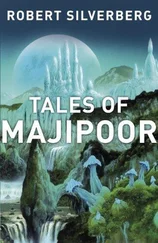Robert Silverberg - Tales from the Venia Woods
Здесь есть возможность читать онлайн «Robert Silverberg - Tales from the Venia Woods» весь текст электронной книги совершенно бесплатно (целиком полную версию без сокращений). В некоторых случаях можно слушать аудио, скачать через торрент в формате fb2 и присутствует краткое содержание. Год выпуска: 2003, ISBN: 2003, Издательство: HarperCollins, Жанр: Альтернативная история, на английском языке. Описание произведения, (предисловие) а так же отзывы посетителей доступны на портале библиотеки ЛибКат.
- Название:Tales from the Venia Woods
- Автор:
- Издательство:HarperCollins
- Жанр:
- Год:2003
- ISBN:978-0-380-97859-5
- Рейтинг книги:3 / 5. Голосов: 1
-
Избранное:Добавить в избранное
- Отзывы:
-
Ваша оценка:
- 60
- 1
- 2
- 3
- 4
- 5
Tales from the Venia Woods: краткое содержание, описание и аннотация
Предлагаем к чтению аннотацию, описание, краткое содержание или предисловие (зависит от того, что написал сам автор книги «Tales from the Venia Woods»). Если вы не нашли необходимую информацию о книге — напишите в комментариях, мы постараемся отыскать её.
Tales from the Venia Woods — читать онлайн бесплатно полную книгу (весь текст) целиком
Ниже представлен текст книги, разбитый по страницам. Система сохранения места последней прочитанной страницы, позволяет с удобством читать онлайн бесплатно книгу «Tales from the Venia Woods», без необходимости каждый раз заново искать на чём Вы остановились. Поставьте закладку, и сможете в любой момент перейти на страницу, на которой закончили чтение.
Интервал:
Закладка:
Robert Silverberg
Tales from the Venia Woods
This all happened a long time ago, in the early decades of the Second Republic, when I was a boy growing up in Upper Pannonia. Life was very simple then, at least for us. We lived in a forest village on the right bank of the Danubius—my parents; my grandmother; my sister, Friya; and I. My father, Tyr, for whom I am named, was a blacksmith, my mother, Julia, taught school in our house, and my grandmother was the priestess at the little Temple of Juno Teutonica nearby.
It was a very quiet life. The automobile hadn’t yet been invented then—all this was around the year 2650, and we still used horse-drawn carriages or wagons—and we hardly ever left the village. Once a year, on Augustus Day—back then we still celebrated Augustus Day—we would all dress in our finest clothes and my father would get our big iron-bound carriage out of the shed, the one he had built with his own hands, and we’d drive to the great municipium of Venia, a two-hour journey away, to hear the Imperial band playing waltzes in the Plaza of Vespasianus. Afterward there’d be cakes and whipped cream at the big hotel nearby, and tankards of cherry beer for the grownups, and then we’d begin the long trip home. Today, of course, the forest is gone and our little village has been swallowed up by the ever-growing municipium, and it’s a twenty-minute ride by car to the center of the city from where we used to live. But at that time it was a grand excursion, the event of the year for us.
I know now that Venia is only a minor provincial city, that compared with Londin or Parisi or Urbs Roma itself it’s nothing at all. But to me it was the capital of the world. Its splendors stunned me and dazed me. We would climb to the top of the great column of Basileus Andronicus, which the Greeks put up eight hundred years ago to commemorate their victory over Caesar Maximilianus during the Civil War in the days when the Empire was divided, and we’d stare out at the whole city; and my mother, who had grown up in Venia, would point everything out to us, the Senate building, the opera house, the aqueduct, the university, the ten bridges, the Temple of Jupiter Teutonicus, the proconsul’s palace, the much greater palace that Trajan VII built for himself during that dizzying period when Venia was essentially the second capital of the Empire, and so forth. For days afterward my dreams would glitter with memories of what I had seen in Venia, and my sister and I would hum waltzes as we whirled along the quiet forest paths.
There was one exciting year when we made the Venia trip twice. That was 2647, when I was ten years old, and I can remember it so exactly because that was the year when the First Consul died—C. Junius Scaevola, I mean, the Founder of the Second Republic. My father was very agitated when the news of his death came. “It’ll be touch and go now, touch and go, mark my words,” he said over and over. I asked my grandmother what he meant by that, and she said, “Your father’s afraid that they’ll bring back the Empire, now that the old man’s dead.” I didn’t see what was so upsetting about that—it was all the same to me, Republic or Empire, Consul or Imperator—but to my father it was a big issue, and when the new First Consul came to Venia later that year, touring the entire vast Imperium province by province for the sake of reassuring everyone that the Republic was stable and intact, my father got out the carriage and we went to attend his Triumph and Processional. So I had a second visit to the capital that year.
Half a million people, so they say, turned out in downtown Venia to applaud the new First Consul. This was N. Marcellus Turritus, of course. You probably think of him as the fat, bald old man on the coinage of the late twenty-seventh century that still shows up in pocket change now and then, but the man I saw that day—I had just a glimpse of him, a fraction of a second as the Consular chariot rode past, but the memory still blazes in my mind seventy years later—was lean and virile, with a jutting jaw and fiery eyes and dark, thick curling hair. We threw up our arms in the old Roman salute and at the top of our lungs we shouted out to him, “Hail, Marcellus! Long live the Consul!”
(We shouted it, by the way, not in Latin but in Germanisch. I was very surprised at that. My father explained afterward that it was by the First Consul’s own orders. He wanted to show his love for the people by encouraging all the regional languages, even at a public celebration like this one. The Gallians had hailed him in Gallian, the Britannians in Britannic, the Lusitanians in whatever it is they speak there, and as he traveled through the Teutonic provinces he wanted us to yell his praises in Germanisch. I realize that there are some people today, very conservative Republicans, who will tell you that this was a terrible idea, because it has led to the resurgence of all kinds of separatist regional activities in the Imperium. It was the same sort of regionalist fervor, they remind us, that brought about the crumbling of the Empire a hundred years before. To men like my father, though, it was a brilliant political stroke, and he cheered the new First Consul with tremendous Germanische exuberance and vigor. But my father managed to be a staunch regionalist and a staunch Republican at the same time. Bear in mind that over my mother’s fierce objections he had insisted on naming his children for ancient Teutonic gods instead of giving them the standard Roman names that everybody else in Pannonia favored then.)
Other than going to Venia once a year, or on this one occasion twice, I never went anywhere. I hunted, I fished, I swam, I helped my father in the smithy, I helped my grandmother in the Temple, I studied reading and writing in my mother’s school. Sometimes Friya and I would go wandering in the forest, which in those days was dark and lush and mysterious. And that was how I happened to meet the last of the Caesars.
There was supposed to be a haunted house deep in the woods. Marcus Aurelius Schwarzchild it was who got me interested in it, the tailor’s son, a sly and unlikable boy with a cast in one eye. He said it had been a hunting lodge in the time of the Caesars, and that the bloody ghost of an Emperor who had been killed in a hunting accident could be seen at noontime, the hour of his death, pursuing the ghost of a wolf around and around the building. “I’ve seen it myself,” he said. “The ghost of the Emperor, I mean. He had a laurel wreath on, and everything, and his rifle was polished so it shined like gold.”
I didn’t believe him. I didn’t think he’d had the courage to go anywhere near the haunted house and certainly not that he’d seen the ghost. Marcus Aurelius Schwarzchild was the sort of boy you wouldn’t believe if he said it was raining, even if you were getting soaked to the skin right as he was saying it. For one thing, I didn’t believe in ghosts, not very much. My father had told me it was foolish to think that the dead still lurked around in the world of the living. For another, I asked my grandmother if there had ever been an Emperor killed in a hunting accident in our forest, and she laughed and said no, not ever: the Imperial Guard would have razed the village to the ground and burned down the woods, if that had ever happened.
But nobody doubted that the house itself, haunted or not, was really there. Everyone in the village knew that. It was said to be in a certain dark part of the woods where the trees were so old that their branches were tightly woven together. Hardly anyone ever went there. The house was just a ruin, they said, and haunted besides, definitely haunted, so it was best to leave it alone.
It occurred to me that the place might just actually have been an Imperial hunting lodge, and that if it had been abandoned hastily after some unhappy incident and never visited since, it might still have some trinkets of the Caesars in it, little statuettes of the gods, or cameos of the royal family, things like that. My grandmother collected small ancient objects of that sort. Her birthday was coming, and I wanted a nice gift for her. My fellow villagers might be timid about poking around in the haunted house, but why should I be? I didn’t believe in ghosts, after all.
Читать дальшеИнтервал:
Закладка:
Похожие книги на «Tales from the Venia Woods»
Представляем Вашему вниманию похожие книги на «Tales from the Venia Woods» списком для выбора. Мы отобрали схожую по названию и смыслу литературу в надежде предоставить читателям больше вариантов отыскать новые, интересные, ещё непрочитанные произведения.
Обсуждение, отзывы о книге «Tales from the Venia Woods» и просто собственные мнения читателей. Оставьте ваши комментарии, напишите, что Вы думаете о произведении, его смысле или главных героях. Укажите что конкретно понравилось, а что нет, и почему Вы так считаете.












